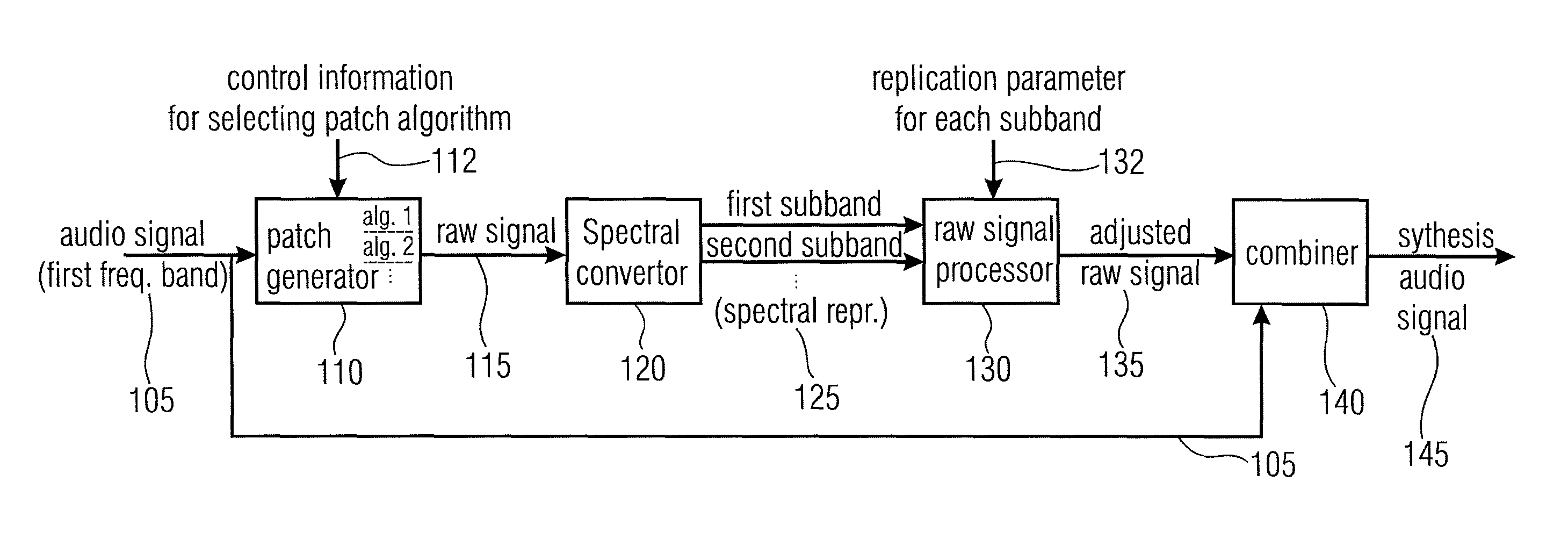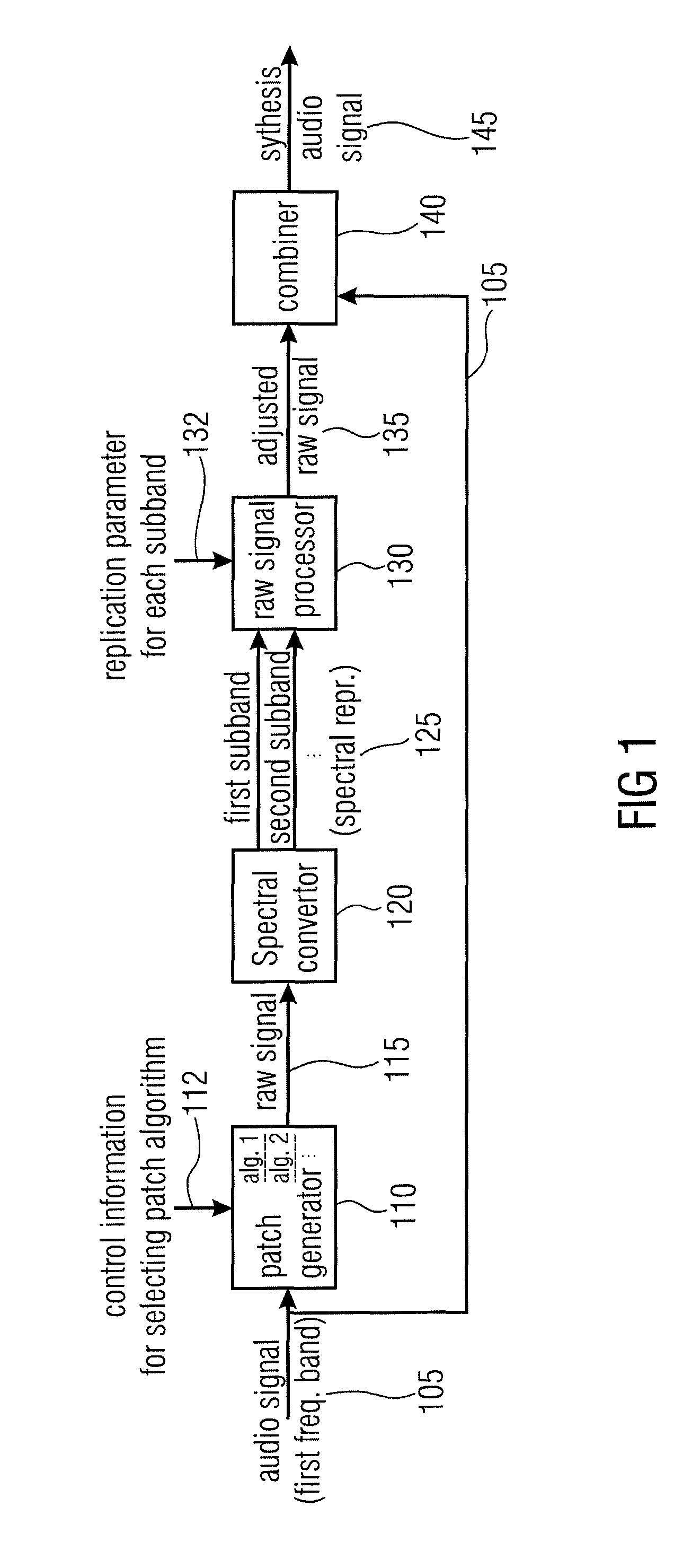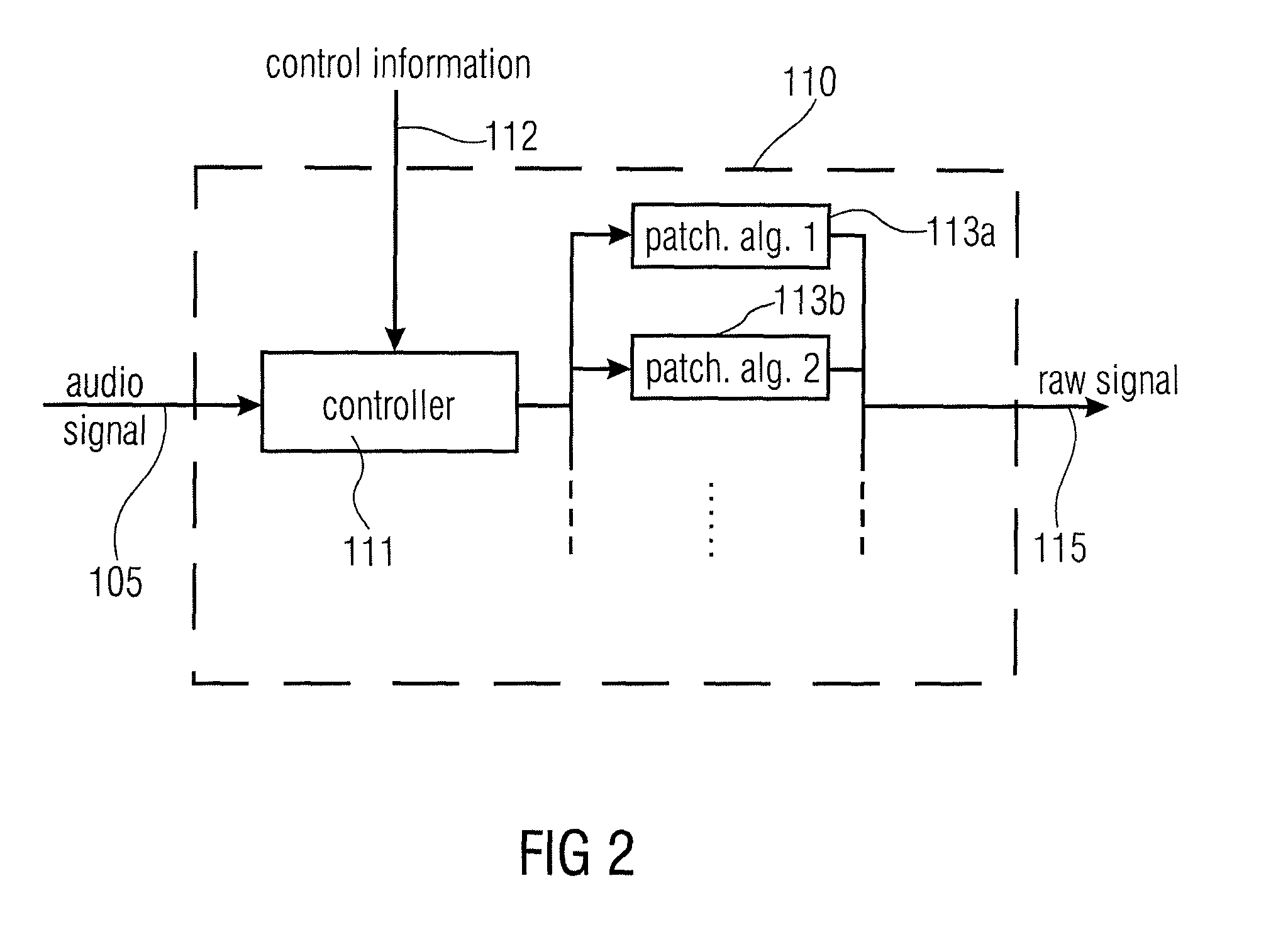Audio signal synthesizer for selectively performing different patching algorithms
a technology of audio signal and patching algorithm, which is applied in the field of audio signal synthesizer, can solve the problems of annoying perceptual degradation, wide band speech coding, and speech coders that are basically limited to speech reproduction, and achieve the effect of significantly improving the perceptive quality of the resulting audio signal and flexible patching
- Summary
- Abstract
- Description
- Claims
- Application Information
AI Technical Summary
Benefits of technology
Problems solved by technology
Method used
Image
Examples
Embodiment Construction
[0046]The embodiments described below are merely illustrative for the principle of the present invention for improving the spectral band replication, for example used with an audio decoder. It is understood that modifications and variations of the arrangements and the details described herein will be apparent to others skilled in the art. It is the intent, therefore, not to be limited by the specific details presented by way of the description and the explanation of embodiments herein.
[0047]FIG. 1 shows an audio signal synthesizer for generating a synthesis audio signal 105 having a first frequency band and a second replicated frequency band derived from the first frequency band. The audio signal synthesizer comprises a patch generator 110 for performing at least two different patching algorithms, wherein each patching algorithm generates a raw signal 115 having signal components in the second replicated frequency band using the audio signal 105 having signal components in the first...
PUM
 Login to View More
Login to View More Abstract
Description
Claims
Application Information
 Login to View More
Login to View More - R&D
- Intellectual Property
- Life Sciences
- Materials
- Tech Scout
- Unparalleled Data Quality
- Higher Quality Content
- 60% Fewer Hallucinations
Browse by: Latest US Patents, China's latest patents, Technical Efficacy Thesaurus, Application Domain, Technology Topic, Popular Technical Reports.
© 2025 PatSnap. All rights reserved.Legal|Privacy policy|Modern Slavery Act Transparency Statement|Sitemap|About US| Contact US: help@patsnap.com



